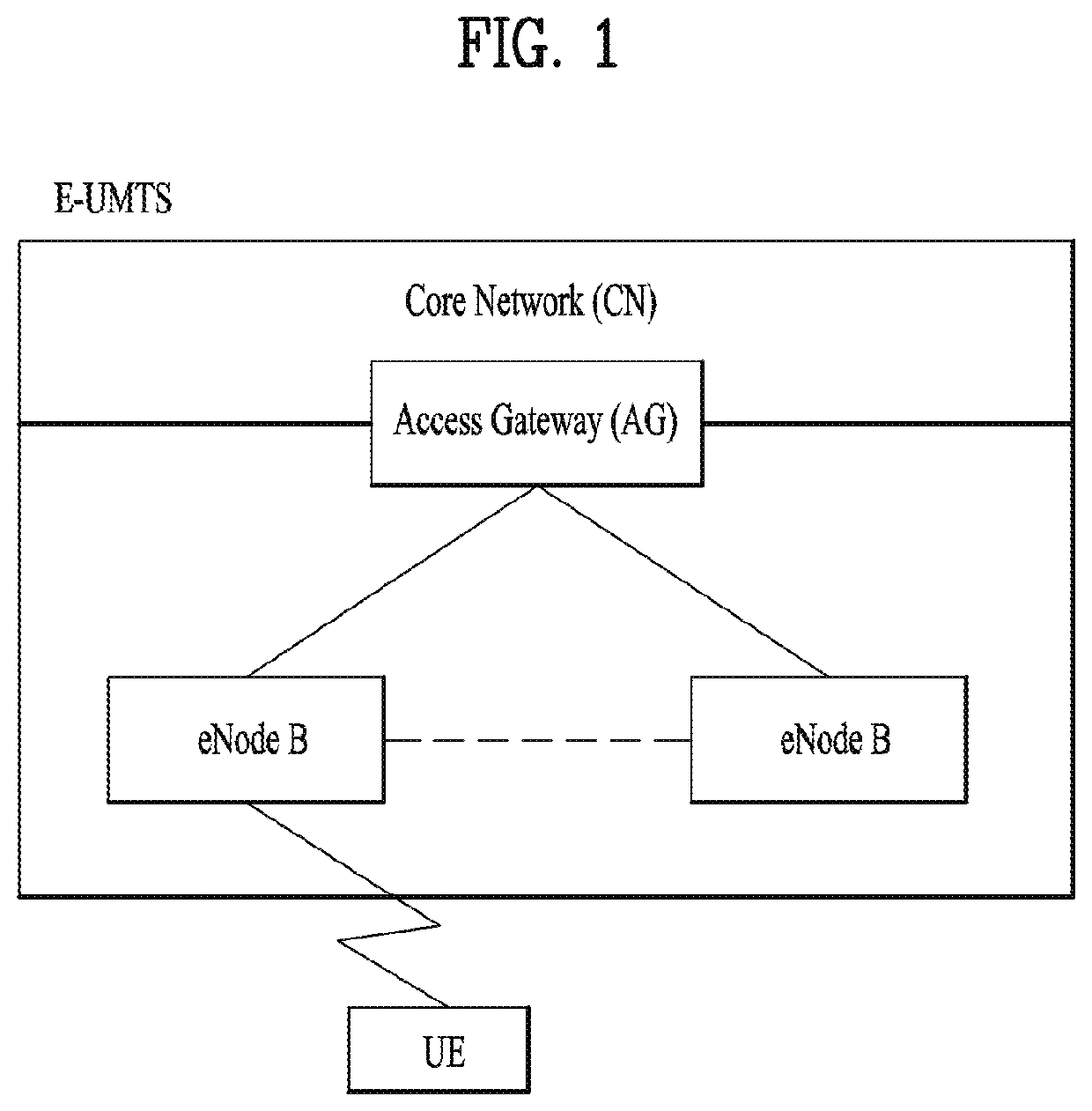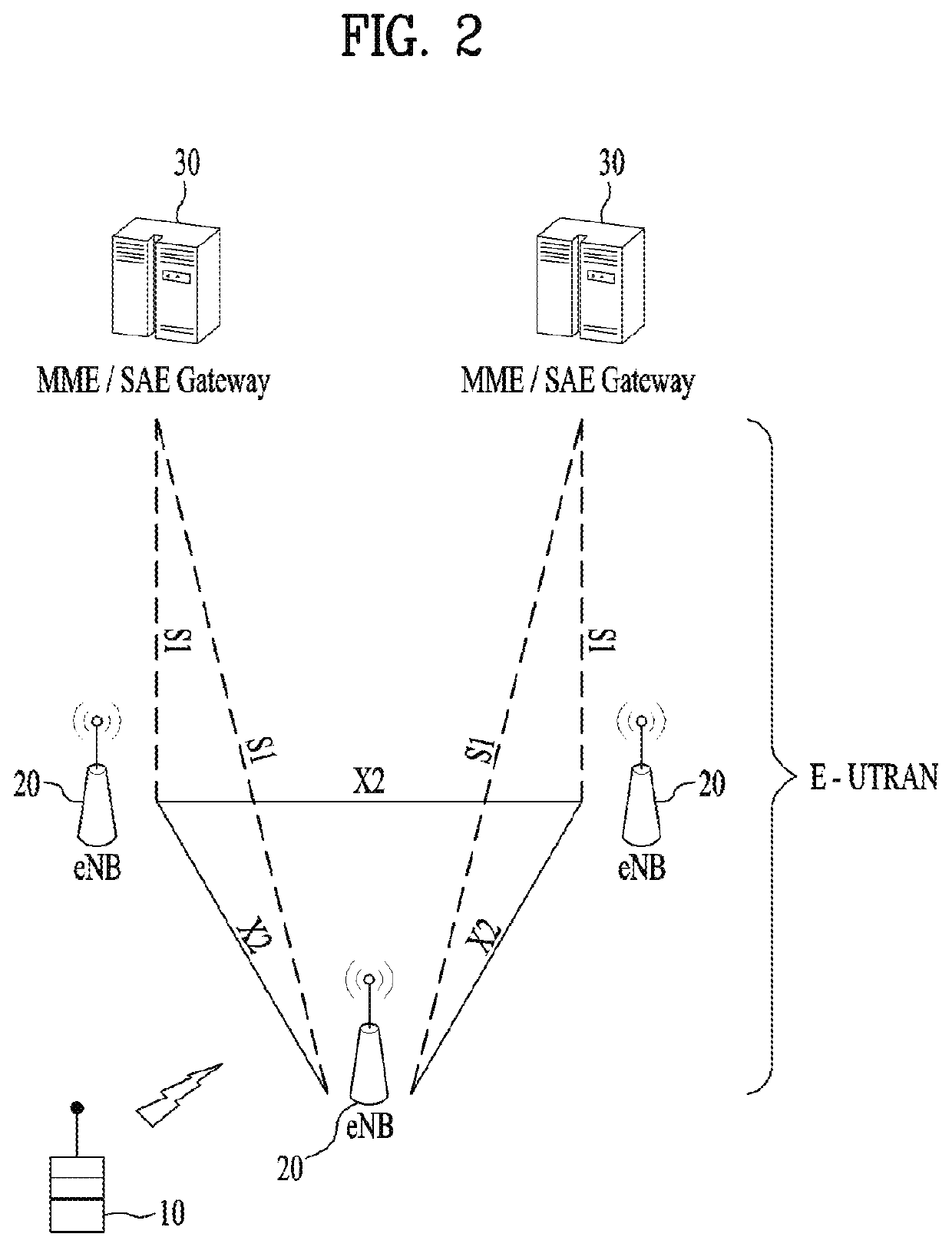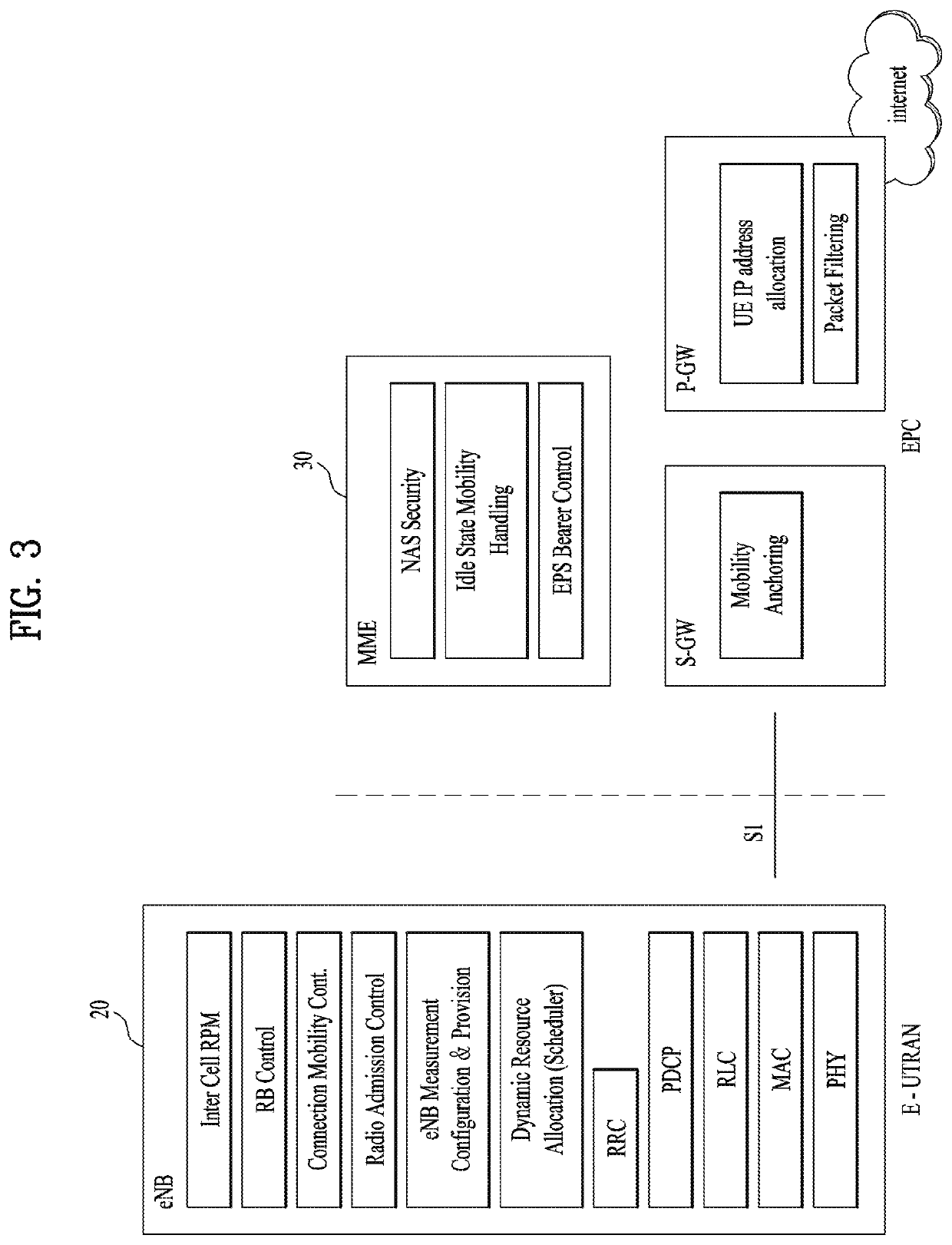Method and user equipment for receiving downlink signal
a downlink signal and user equipment technology, applied in the direction of digital transmission, wireless network protocol, transmission path sub-channel allocation, etc., to achieve the effect of low cost/complexity, efficient transmission/receiving, and improved overall throughput of radio communication system
- Summary
- Abstract
- Description
- Claims
- Application Information
AI Technical Summary
Benefits of technology
Problems solved by technology
Method used
Image
Examples
example a.1
[0212]Each field of an SPS command is associated with each of the SPS patterns and indicates Activation / Release of the associated SPS pattern. The following table shows an example of a SPS command for multiple SPS patterns according to Example A.1 of the present invention.
[0213]
TABLE 8P8P7P6P5P4P3P2P1
[0214]Referring to Table 8, the SPS command includes Pi field, where Pi field indicates whether the SPS pattern with SPS pattern indicator i is to be Activated or to be Released. For example, Pi is set to 1 if the SPS pattern i is to be Activated, and set to 0 if the SPS pattern i is to be Released.
[0215]The SPS command may be a fixed size of signaling depending on the number of SPS patterns. For example, the SPS command may be 1 byte if the highest SPS pattern indicator is 8, 2 bytes if the highest SPS pattern indicator is 16. In this case, no length indicator may be included in the corresponding subheader. The UE can deduce or calculate the length of the SPS command from the highest S...
example a.2-1
[0218]The SPS command includes explicitly the SPS pattern indicator field and Activation / Release indicator field. The SPS command includes all SPS patterns of which state is to be changed. The following tables shows an example of an SPS command for multiple SPS patterns according to Example A.2-1 of the present invention.
[0219]
TABLE 9Pattern iA / RPattern jA / RPattern kA / RPattern mA / R
[0220]Table 9 shows an SPS command including Activation / Release indicator for an even number of SPS patterns. The following table shows an another example of an SPS command for multiple SPS patterns according to Example A.2-1 of the present invention.
[0221]
TABLE 10Pattern iA / RPattern jA / RPattern kA / RRRRR
[0222]Table 10 shows an SPS command including Activation / Release indicator for an odd number of SPS patterns.
[0223]Referring to Table 9 and 10, the SPS command may include 3 bits of SPS pattern indicator field. The SPS command may include 1 bit of A / R field which indicates whether the corresponding SPS patt...
example a.2-2
[0225]The SPS command includes explicitly the SPS pattern indicator field and Activation / Release indicator field. The SPS command includes only one SPS pattern of which state is to be changed. The following table shows an example of an SPS command for multiple SPS patterns according to Example A.2-2 of the present invention.
[0226]
TABLE 11Pattern iA / RRRRR
[0227]Referring to Table 11, the SPS command may include 3 bits of SPS pattern indicator field. The SPS command may include 1 bit of A / R field which indicates whether the corresponding SPS pattern i is to be Activated or to be Released. For example, the A / R field is set to 1 if the corresponding SPS pattern is to be Activated, and set to 0 if the corresponding SPS pattern is to be Released. The SPS command may be a fixed size of signaling. The SPS command includes only one SPS pattern that is to be Activated or Released. For example, the length of the SPS command is fixed to one byte.
[0228]
[0229]In response to the SPS command, the UE...
PUM
 Login to View More
Login to View More Abstract
Description
Claims
Application Information
 Login to View More
Login to View More - R&D
- Intellectual Property
- Life Sciences
- Materials
- Tech Scout
- Unparalleled Data Quality
- Higher Quality Content
- 60% Fewer Hallucinations
Browse by: Latest US Patents, China's latest patents, Technical Efficacy Thesaurus, Application Domain, Technology Topic, Popular Technical Reports.
© 2025 PatSnap. All rights reserved.Legal|Privacy policy|Modern Slavery Act Transparency Statement|Sitemap|About US| Contact US: help@patsnap.com



